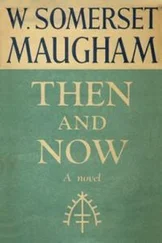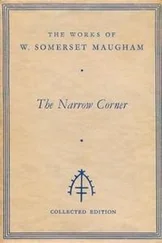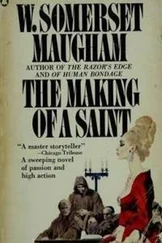C.–C. The cuckoos have always been very plentiful. Their note has a personal application which, I must say, I have found extremely offensive.
LADY KITTY. When I saw that you didn't marry again I couldn't help thinking that you still loved me.
C.–C. I am one of the few men I know who is able to profit by experience.
LADY KITTY. In the eyes of the Church I am still your wife. The Church is so wise. It knows that in the end a woman always comes back to her first love. Clive, I am willing to return to you.
C.–C. My dear Kitty, I couldn't take advantage of your momentary vexation with Hughie to let you take a step which I know you would bitterly regret.
LADY KITTY. You've waited for me a long time. For Arnold's sake.
C.–C. Do you think we really need bother about Arnold? In the last thirty years he's had time to grow used to the situation.
LADY KITTY. [ With a little smile. ] I think I've sown my wild oats, Clive.
C.–C. I haven't. I was a good young man, Kitty.
LADY KITTY. I know.
C.–C. And I'm very glad, because it has enabled me to be a wicked old one.
LADY KITTY. I beg your pardon.
[ ARNOLD comes in with a large book in his hand.
ARNOLD. I say, I've found the book I was hunting for. Oh! isn't Lord Porteous here?
LADY KITTY. One moment, Arnold. Your father and I are busy.
ARNOLD. I'm so sorry.
[ He goes out into the garden.
LADY KITTY. Explain yourself, Clive.
C.–C. When you ran away from me, Kitty, I was sore and angry and miserable. But above all I felt a fool.
LADY KITTY. Men are so vain.
C.–C. But I was a student of history, and presently I reflected that I shared my misfortune with very nearly all the greatest men.
LADY KITTY. I'm a great reader myself. It has always struck me as peculiar.
C.–C. The explanation is very simple. Women dislike intelligence, and when they find it in their husbands they revenge themselves on them in the only way they can, by making them—well, what you made me.
LADY KITTY. It's ingenious. It may be true.
C.–C. I felt I had done my duty by society and I determined to devote the rest of my life to my own entertainment. The House of Commons had always bored me excessively and the scandal of our divorce gave me an opportunity to resign my seat. I have been relieved to find that the country got on perfectly well without me.
LADY KITTY. But has love never entered your life?
C.–C. Tell me frankly, Kitty, don't you think people make a lot of unnecessary fuss about love?
LADY KITTY. It's the most wonderful thing in the world.
C.–C. You're incorrigible. Do you really think it was worth sacrificing so much for?
LADY KITTY. My dear Clive, I don't mind telling you that if I had my time over again I should be unfaithful to you, but I should not leave you.
C.–C. For some years I was notoriously the prey of a secret sorrow. But I found so many charming creatures who were anxious to console that in the end it grew rather fatiguing. Out of regard to my health I ceased to frequent the drawing–rooms of Mayfair.
LADY KITTY. And since then?
C.–C. Since then I have allowed myself the luxury of assisting financially a succession of dear little things, in a somewhat humble sphere, between the ages of twenty and twenty–five.
LADY KITTY. I cannot understand the infatuation of men for young girls. I think they're so dull.
C.–C. It's a matter of taste. I love old wine, old friends and old books, but I like young women. On their twenty–fifth birthday I give them a diamond ring and tell them they must no longer waste their youth and beauty on an old fogey like me. We have a most affecting scene, my technique on these occasions is perfect, and then I start all over again.
LADY KITTY. You're a wicked old man, Clive.
C.–C. That's what I told you. But, by George! I'm a happy one.
LADY KITTY. There's only one course open to me now.
C.–C. What is that?
LADY KITTY. [ With a flashing smile. ] To go and dress for dinner.
C.–C. Capital. I will follow your example.
[ As LADY KITTY goes out ELIZABETH comes in.
ELIZABETH. Where is Arnold?
C.–C. He's on the terrace. I'll call him.
ELIZABETH. Don't bother.
C.–C. I was just strolling along to my cottage to put on a dinner jacket. [ As he goes out. ] Arnold.
[ Exit C.–C.
ARNOLD. Hulloa! [ He comes in. ] Oh, Elizabeth, I've found an illustration here of a chair which is almost identical with mine. It's dated 1750. Look!
ELIZABETH. That's very interesting.
ARNOLD. I want to show it to Porteous. [ Moving a chair which has been misplaced. ] You know, it does exasperate me the way people will not leave things alone. I no sooner put a thing in its place than somebody moves it.
ELIZABETH. It must be maddening for you.
ARNOLD. It is. You are the worst offender. I can't think why you don't take the pride that I do in the house. After all, it's one of the show places in the county.
ELIZABETH. I'm afraid you find me very unsatisfactory.
ARNOLD. [ Good–humouredly. ] I don't know about that. But my two subjects are politics and decoration. I should be a perfect fool if I didn't see that you don't care two straws about either.
ELIZABETH. We haven't very much in common, Arnold, have we?
ARNOLD. I don't think you can blame me for that.
ELIZABETH. I don't. I blame you for nothing. I have no fault to find with you.
ARNOLD. [ Surprised at her significant tone. ] Good gracious me! what's the meaning of all this?
ELIZABETH. Well, I don't think there's any object in beating about the bush. I want you to let me go.
ARNOLD. Go where?
ELIZABETH. Away. For always.
ARNOLD. My dear child, what are you talking about?
ELIZABETH. I want to be free.
ARNOLD. [ Amused rather than disconcerted. ] Don't be ridiculous, darling. I daresay you're run down and want a change. I'll take you over to Paris for a fortnight if you like.
ELIZABETH. I shouldn't have spoken to you if I hadn't quite made up my mind. We've been married for three years and I don't think it's been a great success. I'm frankly bored by the life you want me to lead.
ARNOLD. Well, if you'll allow me to say so, the fault is yours. We lead a very distinguished, useful life. We know a lot of extremely nice people.
ELIZABETH. I'm quite willing to allow that the fault is mine. But how does that make it any better? I'm only twenty–five. If I've made a mistake I have time to correct it.
ARNOLD. I can't bring myself to take you very seriously.
ELIZABETH. You see, I don't love you.
ARNOLD. Well, I'm awfully sorry. But you weren't obliged to marry me. You've made your bed and I'm afraid you must lie on it.
ELIZABETH. That's one of the falsest proverbs in the English language. Why should you lie on the bed you've made if you don't want to? There's always the floor.
ARNOLD. For goodness' sake don't be funny, Elizabeth.
ELIZABETH. I've quite made up my mind to leave you, Arnold.
ARNOLD. Come, come, Elizabeth, you must be sensible. You haven't any reason to leave me.
ELIZABETH. Why should you wish to keep a woman tied to you who wants to be free?
ARNOLD. I happen to be in love with you.
ELIZABETH. You might have said that before.
ARNOLD. I thought you'd take it for granted. You can't expect a man to go on making love to his wife after three years. I'm very busy. I'm awfully keen on politics and I've worked like a dog to make this house a thing of beauty. After all, a man marries to have a home, but also because he doesn't want to be bothered with sex and all that sort of thing. I fell in love with you the first time I saw you and I've been in love ever since.
Читать дальше










